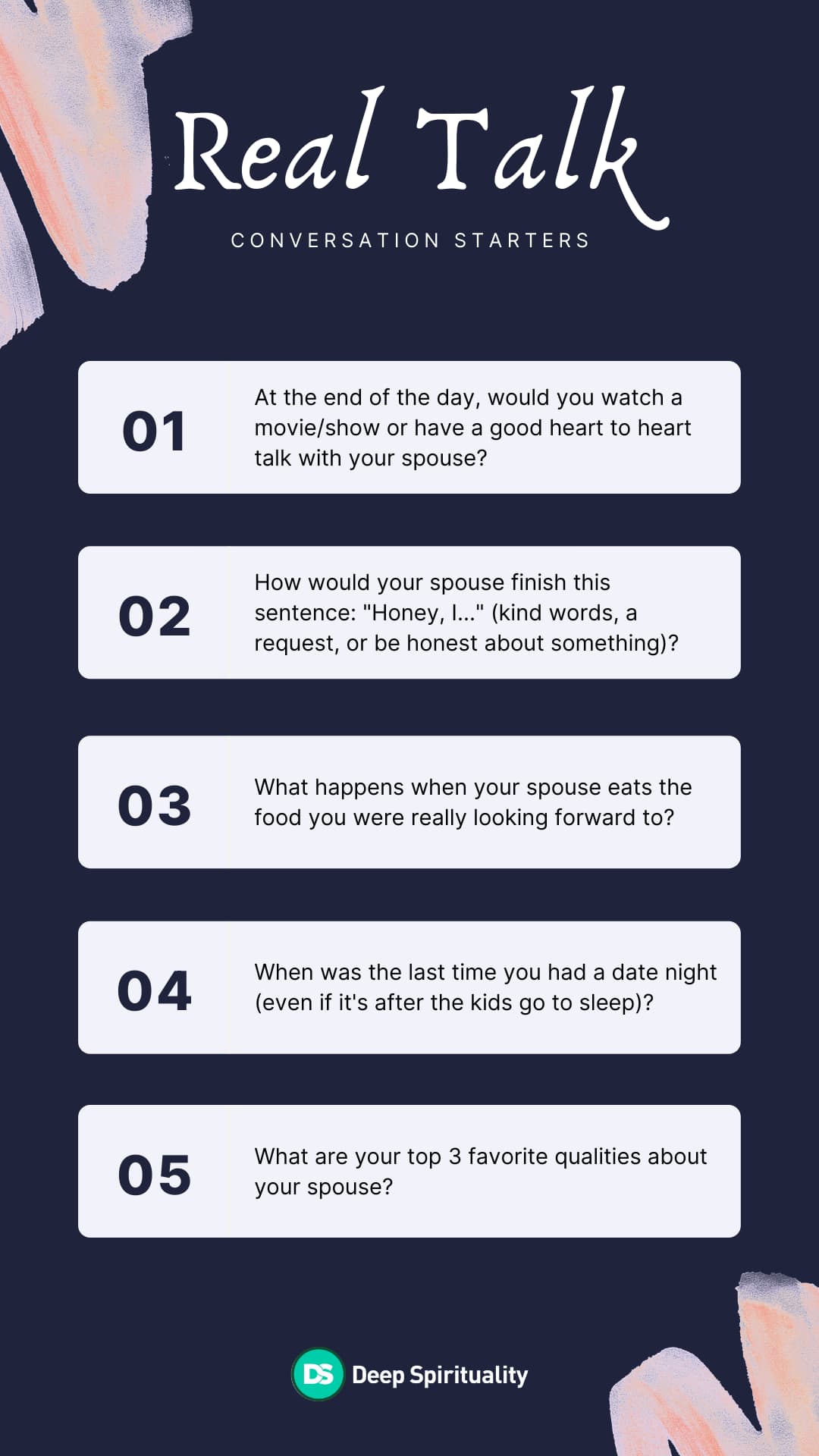We recently celebrated our 11-year anniversary, and we did something we may have never done if it was not for the pandemic.
We watched our wedding ceremony video with our 5 year-old daughter. It was an incredible experience, especially as our daughter bombarded us with numerous questions from her innocent and inquisitive mind.
We are grateful for the last 11 years of marriage and excited for the years to come, but we are also aware that there is an enemy lurking around who constantly threatens our marriage. This enemy is not external; it’s our internal battle with selfishness.
Selfishness tempts us to settle for distance, bitterness, and self-protection. Anyone can succumb to its alluring promise for comfort and ease, especially as it pertains to marriage.
Let’s face it, two becoming one (Genesis 2:24) sounds sweet at a wedding, but in reality, it’s a daunting endeavor. It requires a level of selflessness and love that is not natural; it must be learned, developed, renewed and sustained through the unpredictabilities of life.
Ephesians 5 best describes the level of love and selflessness required to build the kind of marriages that please God:
25 Husbands, love your wives [seek the highest good for her and surround her with a caring, unselfish love], just as Christ also loved the church and gave Himself up for her, 26 so that He might sanctify the church, having cleansed her by the washing of water with the word [of God], 27 so that [in turn] He might present the church to Himself in glorious splendor, without spot or wrinkle or any such thing; but that she would be holy [set apart for God] and blameless.
28 Even so husbands should and are morally obligated to love their own wives as [being in a sense] their own bodies. He who loves his own wife loves himself. 29 For no one ever hated his own body, but [instead] he nourishes and protects and cherishes it, just as Christ does the church, 30 because we are members (parts) of His body. 31 For this reason a man shall leave his father and his mother and shall be joined [and be faithfully devoted] to his wife, and the two shall become one flesh.
32 This mystery [of two becoming one] is great; but I am speaking with reference to [the relationship of] Christ and the church. 33 However, each man among you [without exception] is to love his wife as his very own self [with behavior worthy of respect and esteem, always seeking the best for her with an attitude of lovingkindness], and the wife [must see to it] that she respects and delights in her husband [that she notices him and prefers him and treats him with loving concern, treasuring him, honoring him, and holding him dear].
Ephesians 5:25-33 (AMP)
Depending on my spiritual state, this scripture can either inspire or irritate me. For example, one of the ways I’ve had to learn to unselfishly love my wife is becoming more disciplined and considerate. I (Martin) procrastinate and don’t mind flying by the seat of my pants.
Jynette, on the other hand, is a master planner. She is detail-oriented and loves to plan ahead. As you can imagine, we bumped heads quite a bit, especially when we first got married. I felt I had several reasons to defend my case and justify my “spontaneous” way of life. I was irritated at the idea of having to change the way I lived.
Sign up for our devotional newsletter
Subscribe to My Morning Mindset, a 3-day-a-week newsletter with devotionals designed to help you experience a personal relationship with God.
Bottom line, I was incredibly selfish and resisted the idea of becoming more disciplined and considerate of how my choices affected my wife. I resisted obeying the scripture above as it called me to love Jynette by seeking the highest good for her with caring, unselfish love.
In fact, the Bible’s standard of love for husbands is what Jesus did for the church, giving himself up so the church could be blameless. Embracing the idea that I could and needed to grow to become more like Jesus inspired me and helped me get over my irritation.
Before diving into the tips to begin building a selfless marriage, take a moment to answer the following reflection questions to get a sense of what condition your relationship is currently in. Bonus points if you do them together with your spouse.

Six steps to drive out selfishness
After identifying the selfishness that stifles us in marriage and deciding to change together, we are now ready to take action. We will primarily use 1 Corinthians 13 to guide us through our journey to improve or transform our marriages.
Let go of grudges and bitterness
4 Love … 5 …It does not hold grudges and will hardly even notice when others do it wrong.
1 Corinthians 13:4a, 5b (TLB)
When we first got married, I (Jynette) noticed everything about my husband. Initially, I was genuinely curious about why he did certain things, like watch basketball on several devices simultaneously.
As a result, I have learned more than I ever thought I would know about basketball. I enjoy sports so I was fine with it for a while, but then my curiosity and genuine interest grew into criticism and eventually became a grudge.
I started keeping score of all the things he did wrong so that I could justify my own selfish actions guilt-free. My fundamental argument was, “Fine, if you’re gonna do that, then I’m gonna do this.”
I would struggle to apologize because I was waiting for him to apologize. I knew what I should do but the feeling of being wronged outweighed my desire to do what God wanted and just let it go. Can you relate? So, what’s the solution?
3 Why would you focus on the flaw in someone else’s life and yet fail to notice the glaring flaws of your own? 4 How could you say to your friend, ‘Let me show you where you’re wrong,’ when you’re guilty of even more? 5 You’re being hypercritical and a hypocrite! First acknowledge your own ‘blind spots’ and deal with them, and then you’ll be capable of dealing with the ‘blind spot’ of your friend.
Matthew 7:3-5 (TPT)
The best way to let go of bitterness and resentment is to take a good long look in the spiritual mirror. I’ve had to tell myself the truth that I often turn to the sins of selfishness and bitterness, and I did this long before I even met my husband.
This truth helps me take responsibility for the fact that my husband has to wade through my landmines of bitterness and assaults of selfishness, and these existed long before we met.
Once I tell myself this truth, I can focus on repenting of those sins and their effects in our marriage instead of holding a grudge. Whatever issues I am having a difficult time letting go of in my marriage are often easily resolved when I deal with my own ‘blind spots.’
Letting go of grudges is an important step in driving selfishness out of a selfish marriage. Bitterness breeds selfishness; it’s hard to be loving and giving toward someone when you’re keeping a record of all the ways they have wronged you.
Take action
- Decide to let go of bitterness and grudges.
- Take a look in the ‘spiritual mirror’ first and tell yourself the truth about what sins you have brought into your marriage, so that you can be merciful and forgiving toward your spouse.
Be truthful, even if there’s fallout
It is never glad about injustice, but rejoices whenever truth wins out.
1 Corinthians 13:6 TLB
Anytime I (Jynette) think about truth, the line “Tell the truth!” from the movie Concussion comes to mind. It’s part of a scene where a pathology doctor who conducts autopsies on NFL players challenges a doctor who works with the NFL to tell the truth about the damaging effects that playing football has on the players’ brains. The NFL doctor struggles with telling the truth because of the possible financial fallout.
Have you ever failed to tell the truth in your marriage because of the possible fallout? Often, Martin and I fail to embrace truth in our marriage because of the possible fallout of our emotions.
Instead of rejoicing when truth wins out, we can easily get angry, critical, and defensive. When we don’t want to deal with these uncomfortable emotions, we start letting deceit win out.
Our daughter has taught us the power of this scripture when lived out. When she does something sneaky, she ends up telling me all about it without even being asked. She believes it is better to be honest, even if it means she will have consequences. She ends up happy and free because she is guilt-free.
What if we all decided to rejoice when our spouses were truthful about things they’ve done wrong, like spending money you don’t have? Or when they tell you uncomfortable things they think or feel?
Even if these things aren’t “good things,” they are better exposed than hidden. Truth leads to closeness and helps us know how to help each other change.
Take action
- Talk to your spouse about how you handle truth in your home. Do you rejoice in the truth because it brings you closer?
- What are some things that can be more difficult for you to be honest about with each other?
Stay loyal, even when it hurts
If you love someone, you will be loyal to him no matter what the cost…
1 Corinthians 13:7a TLB
This scripture calls us to be loyal no matter the cost. Anyone attempting to build a marriage aligned to the Bible understands there is a cost to building a great marriage.
When an opportunity arises to help your spouse but it means it will cost you your selfishness, do you remain loyal? Or do you sell out to the easy and more comfortable ways of the selfish? It takes loyalty to see the good, the bad, and the ugly in your spouse and yet stick with them and help them.
1 Lord, who may dwell in your sacred tent? Who may live on your holy mountain? 2 The one whose walk is blameless, who does what is righteous, who speaks the truth from their heart; 3 whose tongue utters no slander, who does no wrong to a neighbor, and casts no slur on others;
4 who despises a vile person but honors those who fear the Lord; who keeps an oath even when it hurts, and does not change their mind; 5 who lends money to the poor without interest; who does not accept a bribe against the innocent. Whoever does these things will never be shaken.
Psalm 15 (NIV)
Personally, it’s hardest for me to remain loyal when I feel hurt in marriage. First, I have the hardest time admitting when I get hurt. It’s easy for me to choose to selfishly pull my heart back and protect myself instead of vulnerably sharing my feelings.
But part of having a great relationship with God and a great marriage is the ability to keep our oath even when we are hurt.
In any marriage, there will be hurt feelings because it is typically the relationship where you let down your guard completely. When our guard is down and the person we love the most hurts us, it can be difficult to continue to be vulnerable.
Having a relationship with God in which you can pray about difficult emotions like disappointment and pain is crucial to recovering and continuing to be vulnerable with your spouse.
Loyalty in marriage is a direct reflection of our ability to work through our emotions and get our emotional needs met by God.
Take action
- Choose to stay loyal even when you feel hurt.
Expect the best, even when believing is challenging
7 Love is a safe place of shelter,[a] for it never stops believing the best for others.[b] Love never takes failure as defeat, for it never gives up.
1 Corinthians 13:7b TPT
This verse challenges me (Jynette) to the core because one way I get selfish is by choosing to protect myself when I get hurt. Often in our marriage, Martin may disappoint me by failing to do something I asked him to do, and I end up quitting.
It is already difficult for me to ask people to help me with things, so when Martin disappoints me, it hurts even more. Instead of following steps 1-4 in this article, I can just think, “He won’t change.” I can easily stop believing he can become the best version of himself.
If you can find a truly good wife, she is worth more than precious gems! [12] She will not hinder him but help him all her life.
Proverbs 31:10,12 TLB
God has great plans for each of us (Jeremiah 29:11) so I should be cheering on my spouse as he strives toward them. Expecting the best of your spouse is about expecting their weaknesses to become strengths by helping them grow.
The most effective help I have given my husband has always started in my prayer life. Prayer is where we should put most of our energy. When I pray for Martin, I begin to see change in him. His prayers change, his personal Bible study becomes transformative, and he starts having conversations with me and others that lead to change.
Take action
- Put forth your greatest effort in prayer in your quest to expect the best for your spouse.
Embrace an “always” attitude
If you love someone, you will be loyal to him no matter what the cost. You will always believe in him, always expect the best of him, and always stand your ground in defending him.
1 Corinthians 13:7 TLB
One of the attributes of love is the choice to always stand our ground in defending someone else. The key word is “always.”
When I am not feeling stressed, pressured or overwhelmed, it is a lot easier to stand my ground defending my spouse. But when I personally feel like I am drowning in my own emotions or burdens, my love gets tested. I no longer want to hold to what the Bible says about what love truly is, but rather I want to excuse my selfishness.
For the longest time in my marriage, I have allowed my stress to be a license for selfishness. Although it is still a struggle, I am now a lot more aware and quicker to catch myself.
What will your marriage be like if “always” loving becomes the standard instead of loving when you feel like it? What kind of relationship with God would you need to develop to be this selfless? How will your spouse benefit from you embracing an “always” attitude in your love for them?
Take action
- Decide to embrace an “always” attitude in defending your spouse.
Finally, the quest to live out Ephesians 5 and 1 Corinthians 13 unleashes the potential to fulfill our destiny as couples. However, there is one final element, our sixth step, important in this quest. A “grinding” mentality cannot sustain us through the ups and downs of life; we need vision!
Find vision together to keep driving change
Without a vision from God driving our marriage, we will eventually quit resisting our human nature to be self-centered.
18 If people can’t see what God is doing, they stumble all over themselves; But when they attend to what he reveals, they are most blessed.
Proverbs 29:18 (MSG)
Consider the following questions:
- Why did God put you together? (No, he didn’t make a mistake)
- What can you learn from your spouse?
- How is God developing the character of your marriage, turning both of you into selfless people?
- What vision are you both working towards?
If most of your answers are unclear, it’s a sure sign that you are living without a vision.
We are in the midst of this struggle. I get so caught up with the daily, tedious, and mundane things of life, that I often neglect to feed and foster God’s vision for my marriage. As a result, I end up selfish and my spouse is uninspired.
We can also look to married couples in the Bible to learn some signs our marriage needs vision:
- You tolerate disunity (Genesis 27- Isaac & Rebekah)
- You are okay with division (1 Samuel 15 – Nabal & Abigail)
- You are unified in deceit (Acts 5:1-11- Ananias & Sapphira)
- You don’t engage each other’s defiance (Genesis 3- Adam & Eve)
The Bible is full of examples of imperfect couples who God used in great ways despite their weaknesses. There are others in the Bible whose example provides us a warning of things not to do. Regardless, all of these stories are in the Bible for us to relate to and learn from.
One thing is clear: the couples living out God’s vision ended up inspiring others. One way we can begin working on our vision is to honestly reflect and answer the questions above together as couples. It also never hurts to get some help from some spiritual friends.
Pause and reflect
- Were the earlier questions about vision hard to answer? If so, why?
- Which “D” word best describes your marriage dynamic?
- How can you begin working towards a godly vision for your marriage?
Explore more:
Martin Oji is a contributor to Deep Spirituality. He works with college students and young professionals in the San Francisco Bay Area.
Martin Oji is a contributor to Deep Spirituality. He works with college students and young professionals in the San Francisco Bay Area.





